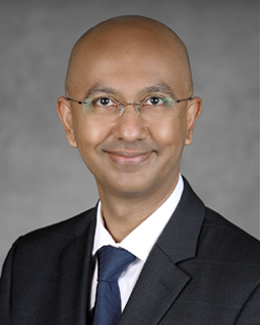Nabi Chowdhury, MD

Specialties
NeurologyMedical School
St. George’s University School of Medicine, Grenada, West IndiesResidency
UMass Memorial Medical Center NeurologyFellowship
The Cleveland Clinic, Neuromuscular MedicineBoard Status
CertifiedBio
Dr. Chowdhury graduated cum laude from State University of New York at Buffalo with a bachelor’s degree in biological sciences and earned a master’s degree in human nutrition from Columbia University in New York, New York. After graduating cum laude from St. George’s University School of Medicine in Grenada, West Indies, with his medical degree, he completed his neurology residency at UMass Memorial Medical Center in Worcester, Massachusetts, and a neuromuscular medicine fellowship at The Cleveland Clinic in Cleveland, Ohio.
Board certified by the American Board of Electrodiagnostic Medicine, and dual board certified by the American Board of Psychiatry and Neurology in adult neurology and neuromuscular medicine, Dr. Chowdhury specializes in the diagnosis, treatment and management of amyotrophic lateral sclerosis, muscular dystrophy, myasthenia gravis, myopathy and neuropathy. He is also a member of the American Academy of Neurology and the American Association of Neuromuscular and Electrodiagnostic Medicine.
Dr. Chowdhury most recently cared for patients as a staff neurologist at Charlotte Hungerford Hospital, a branch of the Ayer Neuroscience Institute and part of Hartford Healthcare in Torrington, Connecticut. While there, Dr. Chowdhury evaluated general neurology outpatients, performed electromyography/nerve conduction velocity studies, served on the Neuromuscular Council to improve standardization and care of neuromuscular patients, worked alongside the local neurology medical director, and reviewed new patient consultation requests.
Dr. Chowdhury, along with the highly skilled physicians and staff at Lexington Neurology, provide comprehensive care in the evaluation, monitoring, prevention and treatment of cognitive and general neurological disorders, including nervous system inflammatory diseases, Alzheimer’s disease, early and late onset dementia and Parkinson’s disease, among other conditions.